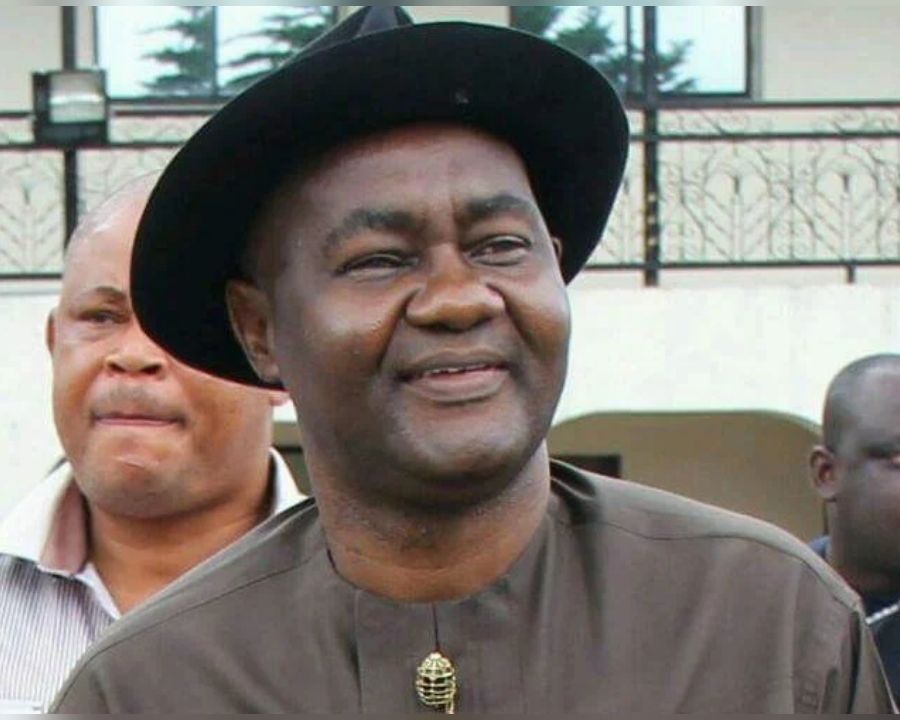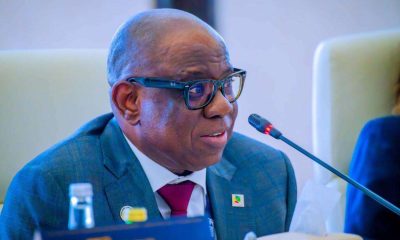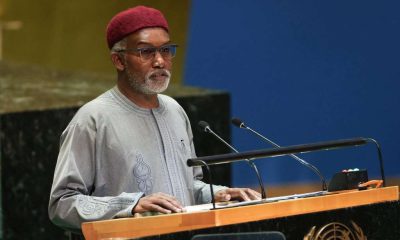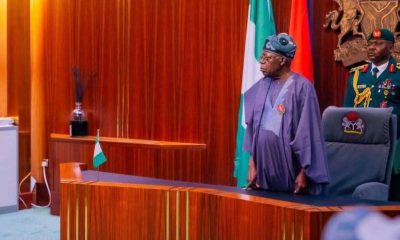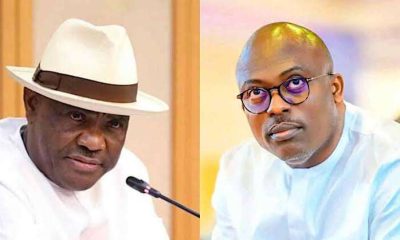Op-Ed.
President Tinubu and the courage syndrome

Courage is the hallmark of great leaders but not the undigested type.
President Bola Tinubu had the Nigerian presidency as a life ambition and did everything to grab it. But, contrary to all expectation, his first steps give the impression that he is unprepared for the job and does not quite understand it, given the penchant for putting the wrong leg forward, right from the day of swearing-in, on May 29, 2023.
First, was his precipitate withdrawal of the subsidy on the pump price of petrol, without any concrete measures to alleviate the consequent hardship on the populace. The removal has worsened inflation – transmitted from transportation to all essential goods and services. For the first time in more than two decades, composite inflation now stands at over 25 percent.
President Tinubu ascribed that undigested pronouncement to “a sudden possession of courage,” which came upon him while on the podium of inaugural address. This sudden possession of courage did not end with subsidy removal but has, regretfully, remained a feature of his presidency to date.
The floating of Naira exchange rate (perhaps, with the intention of ending the era of corruption in multiple exchange rates and arbitrage between official and parallel market rates) followed in the heels of subsidy removal. The President failed to reckon that the problem with our exchange rate management is not duality but bastardization by the authorities and the fact that the demand for foreign currencies is peculiarly inelastic (insatiable) among Nigerian politicians and “big men” bent on converting their huge (and largely illicit) Naira holdings to stable currencies. Moreover, the foundations – from security to power and infrastructure – for substantial local substitution of imported goods and services – no longer exist. Furthermore, the remaining source of foreign currency has been drastically compromised by crude oil theft, and fuel importation.
These drawbacks mean that there can never be a convergence of rates. They should have been tackled, first, given that, once the exchange rate is, otherwise, floated, there would be no wedge to the free fall of the Naira, which would be worsened by speculative demand – in the expectation that the rate would perennially get worse.
Nothing short of increased output of crude oil, domestic production of essential goods and services and expenditure control, among other measures, can save the Naira. The idea of further external borrowing, to stabilize it, without domestic regeneration, is laughable, as everyone can see.
There is also the case of President Tinubu’s spontaneous threat to invade the Niger Republic by the Economic Community of West African States (ECOWAS) of which he is Chairman. His intention was to restore President Bazoum (who was overthrown by his soldiers) to office, “in defense of democracy”.
In championing that declaration, he failed to reckon with the fact that the brunt of every ECOWAS military expedition has been borne by Nigeria and that Nigeria’s Armed Forces are, currently, over-stretched by the endemic insurgency consuming the country. He was not mindful of the will of Nigeriens and of the borderless, filial, relationship between Northwestern and Northeastern Nigeria and the Niger Republic.
It is also contestable whether a slavish democracy is worth defending – worth sending our young men to the grave, when there is nothing to show for previous expeditions.
But, perhaps, the worst of President Tinubu’s bull-headedness is the constitution of the largest cabinet in the history of Nigeria, in a time that calls for stern austerity. The 48-man cabinet is a crowd of the good, the bad and the ugly and entirely inexcusable at a time of financial crisis and economic hardship. It is disappointing to many people, who expected a compact and more professional and focused team.
Too many hands, they say, spoil the broth. The speculation is that he is concerned with patronage for foot soldiers and the next election more than the country’s economic predicament.
One could go on and on.
We are worried that President Tinubu is taking too much time to demonstrate that he realizes the circumstances of his presidency and the yearnings of the people, particularly, the underprivileged youths, who constitute more than 70 percent of the population and to whom the country and its future actually belongs, but who have long been sidelined. They have finally awakened and are bound to resist further mis-governance to retrieve the country from his utterly corrupt and despicable old guard.
Let him demonstrate that he could make Nigeria work for all, before they boil over and become unstoppable. In particular, he should well know that the buck stops on the president’s desk. Ministers help to formulate and implement policies. Their success or failure, individually and collectively, determines that of the government. But Nigerians will blame the president for failure – as much as they would applaud him if the government succeeds.
At Business Hallmark, we are more concerned with the ministers being the best men and women available for the job than in their ethnic distribution – although a Southern presidency cannot be exclusive to the Southwest. Unfortunately, among his crowd of ministers, only a few can be attested to for character and track record of performance. Many had been indicted for corruption. The rest are neither here nor there, in terms of job specification. There is even one that did not complete the compulsory National Youth Service. Talk of basic Rule of Law.
In our view, here are some of the measures President Tinubu must take immediately, if he is to succeed.
Courage is good, but he must desist from issuing undigested policies, capable of setting the people against the government. As they say, order is the first law in heaven. Articulation is as essential a component of policy as courage.
In 1994, though Naira exchange rate, interest rate and other macro-economic fundamentals were stable and palatable and the manufacturing sector relatively thrived, yet, before Gen. Sani Abacha could tamper with fuel subsidy, he dialogued with the people and created the Petroleum Trust Fund into which differential revenues from the price hike was lodged, for funding concrete projects in public transportation, primary health care, basic education and rural roads and infrastructure and so on.
Given Nigeria’s fragile economy, Mr. President must endorse only measures, which could, directly or indirectly, impact positively on employment, incomes, savings and investment, towards curbing macro-economic instability and insecurity.


